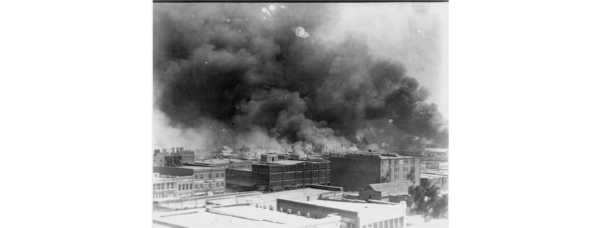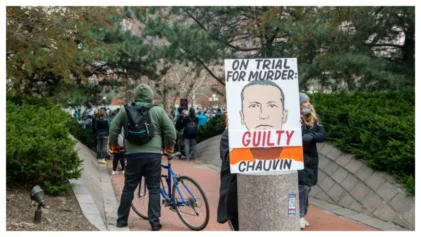Amid the revitalization of the business districts in Tulsa, Oklahoma, Black entrepreneurs say they are being shut out of acquiring loans, tax incentives and property in the most desirable regions 100 years after the Tulsa Race Massacre.
About $42 million worth of tax incentives and loans intended to fund development in Tulsa’s historic Greenwood district has “largely benefited white-owned firms that won the majority of contracts to develop lucrative parcels closest to downtown,” The Washington Post chronicled in a recent report.

Under Oklahoma law, the distribution of these incentives and loans is governed by a race-blind process. City officials have only recently turned their attention to racial disparities in property ownership in the district. Although officials plan to make more land available for redevelopment, the Black entrepreneurs have already been shut out of the most desirable areas of Greenwood.
A century after the 1921 massacre, a single one-block commercial stretch south of the interstate remains Black-owned in a community where Black Americans once thrived in an epicenter of Black business and culture.
The violence began a century ago when a Black teenager was accused of assaulting a white girl in an elevator. When a group of Black men showed up at the courthouse to defend the teen, who was barricaded inside the building with the sheriff, a fight ensued with a mob of white men, and the melee became a conflagration of violence that carried to the Greenwood district.
Over an 18-hour period in 1921 between May 31 and June 1, white mobs attacked, burned and looted the thriving business district that had become known as Black Wall Street. Thousands of survivors were left homeless, and reports of what occurred were largely silenced in media reports.
At least 300 people were killed and more than 800 were injured. More than 1,200 homes and 60 businesses were destroyed.
No Black property owners received compensation, and city and state officials did not commit money to rebuilding the community in the aftermath of the attack.
Tulsa native Guy Troupe, who owns a coffee shop in the Greenwood district, expressed frustration about the disparities in land and property ownership in the region.
“It’s hard to stomach the idea that a museum and tourism will fix the challenges of systemic racism. I came to take back what’s rightfully ours,” the 54-year-old Troupe told the Post. “Who owns in there? It’s not us. The only thing we own are homes. But big industrial buildings, lands zoned for commercial development? We don’t have it.”
Troupe returned to the city after a career in sports consulting.
The Tulsa Development Authority and the state university system own a significant portion of the 35 blocks of buildings that comprise the Greenwood district.
Through the revitalization plan over the past 10 years, the Tulsa Development Authority has sold a half-dozen prime parcels of land to private developers.
Jot Hartley, general counsel for the Tulsa Development Authority and one of several figures who spoke to the Post about the revitalization, said bias is not what keeps Black entrepreneurs from accessing the incentives offered by the city.
“Some of these projects have been rather large and required capital that’s not ordinarily available to just anybody unless they are already in the business of developing large projects,” Hartley said.
The authority said it considers developers’ ties to the community and experience with financing but does not give consideration to a person’s race.
City officials have been resistant to calls for reparations for descendants of victims of the massacre. The Tulsa Development Authority responded to a lawsuit filed by a 105-year-old survivor and other descendants of massacre survivors seeking redress for the violence with a motion to dismiss.
Kian Kamas, Tulsa’s chief of economic development, said the city plans to develop 55 additional acres on smaller parcels north of the interstate and will promote actively among Black developers.
“There is a fervent commitment to ensuring that Black-owned businesses have an opportunity to be a part of that revitalization,” Kamas said.
Troupe said an economic stimulus package should be used to allow Black entreprenuers to rebuild Black Wall Street. Parcels north of the interstate should be made accessible to Black business owners “by deeding land, providing grants and offering low-interest loans so the atrocities of the past could be addressed.”
“Historical Black Wall Street is gone. It’s dead,” he said. “But its spirit can be revived.”


